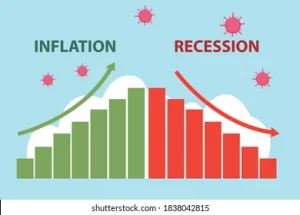Nigeria’s $5 billion startup funding target shaky as economic realities set in

By David Akinmola
Nigeria’s ambitious plan to attract $5 billion in startup funding annually is facing increasing uncertainty as macroeconomic headwinds, foreign investment volatility, and local regulatory challenges dampen investor confidence and slow capital inflows into the tech ecosystem.
Despite being Africa’s largest startup hub by deal volume in recent years, Nigeria is witnessing a funding slowdown that threatens the government’s target set under its “Startup Nigeria” initiative. The plan, unveiled in 2022 following the signing of the Nigeria Startup Act, aimed to position the country as a top destination for venture capital in Africa by improving policy clarity and supporting innovation.
However, as of mid-2025, the funding climate tells a different story. Data from Africa-focused venture tracking platforms shows that Nigerian startups raised less than $500 million in the first half of the year — a steep drop from the $1.2 billion recorded during the same period in 2021.
Several factors are blamed for the dip. Chief among them is Nigeria’s ongoing economic instability, marked by high inflation (currently above 30%), currency depreciation, and rising cost of operations. The naira’s continued volatility has made returns unpredictable for foreign investors, while local startups struggle with dollar-denominated obligations.
“Investors are treading carefully,” said Temitope Ajayi, a Lagos-based venture analyst. “The macroeconomic risks are too high right now, and while Nigeria has the talent and market size, investors want stability and clear exit opportunities — which the current climate doesn’t guarantee.”
Insecurity, inconsistent policy implementation, and the Central Bank’s tightening monetary stance have also raised red flags. Some startups report delays in accessing foreign capital due to tighter FX controls and regulatory uncertainty around fintech and cryptocurrency-related products.
Additionally, global VC appetite has shrunk post-2022 as investors shift toward profitability and capital efficiency, forcing startups in Nigeria to pivot or cut costs. Layoffs, down rounds, and business shutdowns have become common in sectors like logistics, lending, and e-commerce.
“We’re in survival mode,” said the founder of a Lagos-based edtech startup who preferred to remain anonymous. “We’ve stopped chasing high valuations. Right now, it’s about maintaining cash flow and showing real traction.”
Still, stakeholders remain cautiously optimistic. The National Information Technology Development Agency (NITDA) and other government arms are working on policy refinements to ease regulatory pressure, boost infrastructure, and offer targeted incentives to investors.
Some private-led initiatives, including accelerator programs and local VC syndicates, are stepping up to plug the funding gap, but analysts warn that these efforts may not be enough to meet the $5 billion target unless broader economic conditions improve.
“The dream isn’t dead,” Ajayi added, “but it’s clear that achieving that level of startup funding will require more than just declarations — we need deliberate reforms, stable macroeconomic policy, and investor-friendly incentives to restore confidence.”
As Nigeria’s youth-driven startup scene grapples with these tough realities, the path to sustainable growth may hinge less on hype and more on hard-nosed resilience and reform.








